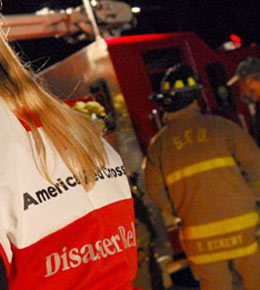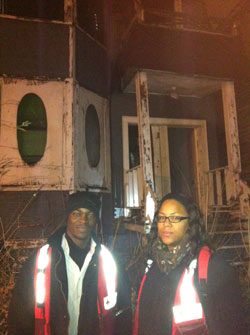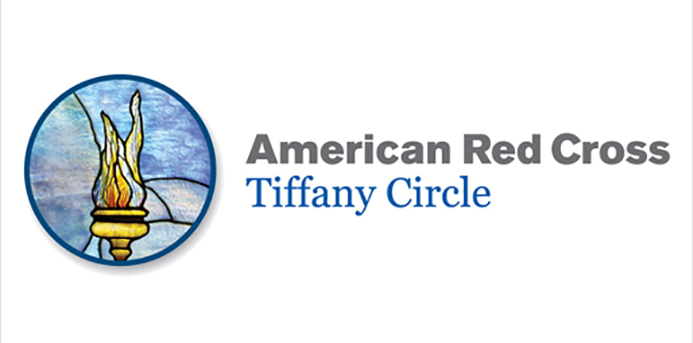
How would you feel if, in an instant, your home was gone?
Like most people, I knew that the Red Cross responds with help following disasters. But until I attended a recruitment event for the Tiffany Circle of the American Red Cross, I never really thought about what help the Red Cross provides and how volunteers deliver it.
After all, when you think “Red Cross” and disaster relief, the first thing that usually comes to mind is a hurricane or tornado. But it doesn’t take a major weather event to wreak havoc. Here in the Chicago area, Red Cross volunteers respond to emergencies including:
- Residential Fires
- Floods
- Tornados
- Earthquakes
- Extreme Temperatures
- Carbon Monoxide Leaks
- Transportation Accidents
- Hazardous Material Incidents
- Community Emergencies
The description of volunteer first responders arriving on the scene of a burning or flooding home piqued my interest. I put myself “on call” to accompany these volunteers in Chicago. On one of the coldest nights in November this year, the dispatcher called.
“Two homes are on fire at 58th and Union on the south side of Chicago. Wear layers with no logos and meet your team leader, Sharika, there.”
When I arrived, several vehicles, including fire department and ComEd trucks, lined the street. The Red Cross SUV was parked off to the side, with two red-vested volunteers—Sharika and Michael—standing to the side of the action.
 The homes on fire belong to a 75-year-old man, who was huddled outside with his two adult sons. He lives on just one floor of one home with his sons, leaving the remaining space vacant.
The homes on fire belong to a 75-year-old man, who was huddled outside with his two adult sons. He lives on just one floor of one home with his sons, leaving the remaining space vacant.
“This has been my home for 57 years, and I am not staying anywhere else!” the owner repeatedly declares.
He doesn’t want help. And he doesn’t want to listen to reason. What can the Red Cross do to help? It turns out, a lot.
“Red Cross will pay for new clothes if their wardrobe was actually destroyed in the fire, 48 hours of food and lodging in a hotel, if they have nowhere else to stay,” Sharika says. “It will also provide medical support and references to other agencies who can provide longer term support, like the Catholic Charities.”
Patience is key for volunteers like Sharika and Michael, who are there to assess what needs Red Cross can meet. Because emergency assistance can be expensive, it’s important to determine exact needs. “Forty-eight hours of food, lodging and clothes for three people, could cost almost $1,000,” Sharika explains.
Losing everything suddenly can be humbling, and eventually, the elderly man admits to being cold enough to accept a pair of new sweatpants from the supplies in the back of the Red Cross vehicle.
A sister promises the men lodging at her home, sparing Red Cross the cost of a hotel. The fire department eventually allowed the men into the home long enough to retrieve medicine and some clothes, saving new wardrobe expenses too. Food for 48 hours? Just $90.
Thanks to the volunteers’ work, the displaced men were safe, secure, and had access to food, medicine, clothes and additional support.
What can you do to help the Red Cross be there for the next disaster victim? Here are a few suggestions:

